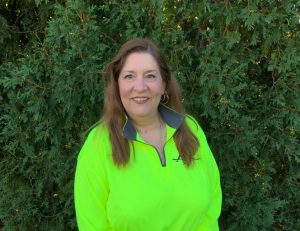Plant Health Care Safety Tips
It is always important to wear your Personal Protective Equipment (PPE), however, working with chemicals in Plant Health Care (PHC), is another story. As a tree care owner, you must make sure your PHC team takes PPE’s seriously. Here are some helpful safety tips to pass onto your PHC team.
Change of Clothes – Keep at least one change of clothes in the vehicle. A change of clothes can make a difference in having to wear the original clothing/shoes that you may have spilled chemicals on during the course of the day home. Place your change of clothing in a sealed plastic bag, when it is time to go home put your chemical residue clothing in the bag and wear the clean clothing/shoes home. Remember to wash your hands after touching your chemical residue clothing. Also wash your chemical residue clothing by itself, do not mix wash your chemical residue clothing with your spouse or children’s clothing.
Gloves – It is imperative, that you wear chemical resistant gloves. When you take them off be sure to wash your hands (a disinfectant wipe can be used for this if in the field). If you don’t wash your hands, popping a candy in your mouth, smoking a cigarette, eating lunch, etc. becomes a game of Russian Roulette – what chemical am I going to taste today. Above all after washing your hands, do not touch your clothing again. Clean your gloves every night – you don’t want to put the gloves on with chemicals from the day before on them. Make sure your gloves go up to at least mid-forearm. If a chemical spills and reaches over the top of the gloves – change your shirt.
Long Sleeve Shirt and Pants – Simply put wearing a long sleeve shirt and pants will protect you from chemical burns on your skin. However, those clothes must be changed right away if you spill any chemical onto your clothes, as the chemical will soak into the fabric and then your skin.
Safety Goggles and Helmet – No one wants to lose their vision due to a chemical splash. So wearing googles are another must wear when working with chemicals. Ensure they fit tightly around your eyes. Your safety helmets also is important in protecting your scalp from the chemical and from blunt trauma that may happen with a broken hose or a slip and fall on a hard surface.
Rubber Boots – Wearing rubber boots and keeping them for only plant health care work is smart. Your feet walk through the mist from spraying and they get chemicals spilled on them. Make sure they do not have any leaks. It is a good idea to take them off without using your hands – try to buy them the right size so you can slip them off.
Disinfectant Wipes – Since chemicals can be transferred to any surface that you touch, utilize disinfectant wipes while in the field and make note of any areas that need a thorough cleaning when you get back to the shop. It is a good idea to bring your lunch in metal container, that way you are sure that no chemicals are touching your food in transport. Wipe down the steering wheel and seats of your truck before you touch anything with your hands. Everything that you touch with your gloves on, or from spills gets contaminated with residue from the chemicals.
If we have learned just one thing from COVID19, it is that it is very difficult not to touch your face or other parts of your body – remember that everything you touch could be contaminated by chemicals – WIPE THE SURFACES DOWN WITH A DISINFECTANT WIPE!
These are just small ideas to think about when working with chemicals – sometimes they do not receive the warnings that they deserve. Whatever chemicals you are working with just be safe about it – think through all the scenarios that might come up during the day where you could have contaminated yourself. Maybe have a group safety meeting and think of all the ways that chemicals can contaminate your workspace. If you do not have anyone working with you, think about the chemical contacts you do during the course of the workday and how you can possibly do better in the future controlling the chemical contaminants.
Above all – be safe!

Written by: Dawn Thierbach

Recent Comments